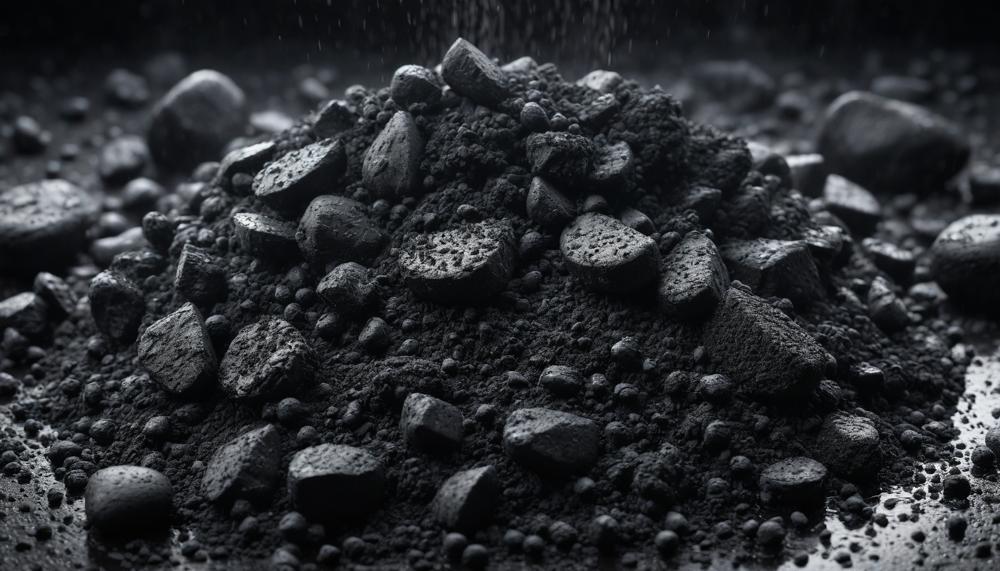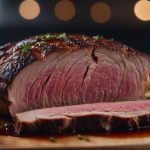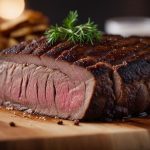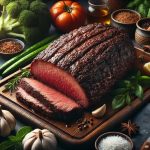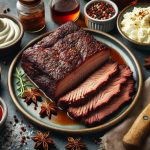When it comes to firing up a charcoal grill, the debate over using lighter fluid often ignites strong opinions among grillmasters and food enthusiasts alike. Is it bad to use charcoal lighter fluid? The answer isn’t a simple yes or no, but rather a nuanced consideration of technique and outcome.
Using charcoal lighter fluid can indeed result in an undesirable taste on grilled food if mishandled. Imagine spending time prepping a perfect cut of meat or fresh veggies, only to have their flavors tainted by the acrid tang of lighter fluid residue. It’s a culinary disappointment that can turn a mouthwatering meal into a regrettable experience.
However, lighter fluid isn’t inherently evil. It can be a convenient tool for getting your coals blazing quickly, especially in situations where alternatives like electric starters or chimney starters aren’t available. The key lies in its judicious application:
- Proper Technique Matters: Apply lighter fluid directly to the charcoal, allowing it to soak in briefly before lighting. Avoid spraying it indiscriminately, which can lead to excess residue and unpleasant flavors.
- Less Is More: Use the minimum amount necessary to ignite the charcoal. Too much fluid not only risks flavor contamination but also safety hazards.
- Start Fresh if Needed: If you suspect you’ve used too much lighter fluid or detect its taste on your food, it’s best to start over with fresh charcoal. This ensures a clean slate for grilling success.
Ultimately, while charcoal lighter fluid can be a handy ally in your grilling arsenal, its misuse can indeed spoil your efforts. For those who prioritize flavor purity and culinary finesse, mastering alternative lighting methods might be worth the extra effort. Whether you’re a weekend grill warrior or a seasoned BBQ aficionado, striking the right balance ensures your grilled creations shine with taste, not regret.
Contents
Choosing the Right Charcoal
The key factors to consider when choosing the right charcoal for grilling are:
| Type of Cooking | Longer cooks benefit from lump, Thai, or coconut charcoal, while hardwood briquettes suit shorter cooks. |
| Experience Level | Beginners should opt for charcoal briquettes for easier control. |
| Price Range | Consider your budget; charcoal types vary in price. |
| Avoid Self-Lighting Charcoal | They may add unpleasant flavors; opt for traditional charcoal. |
| Understanding Charcoal Types | Know the differences and any additives affecting flavor. |
| Flavor Impact | Wood type affects food flavor; choose accordingly. |
| Clean Burning and Heat Output | Look for cleaner, hotter burning options for better grilling. |
Preparing the Grill
| Clean the Grill: Before starting, ensure your grill is clean to prevent flare-ups from grease. Source: BBQGuys |
Arrange Charcoal: Place charcoal evenly for even heat distribution. Source: Weber |
Use Lighter Fluid Sparingly: Apply fluid to charcoal before lighting to avoid flare-ups. Source: Kingsford |
| Check Air Vents: Ensure vents are clear for proper airflow and temperature control. Source: Char-Broil |
Avoid Adding Fluid to Lit Charcoal: Never add fluid once charcoal is burning to prevent accidents. Source: Masterbuilt |
Wait for Charcoal to Ash Over: Wait until charcoal is covered in ash before cooking for optimal heat. Source: Better Homes and Gardens |
This table-based response summarises the best practices for preparing the grill before cooking with charcoal lighter fluid.
It emphasises cleaning the grill, arranging charcoal evenly, using lighter fluid sparingly, checking air vents for proper airflow, and avoiding adding fluid to lit charcoal to ensure safe and effective grilling.
Using Charcoal Lighter Fluid
| Potential Risks of Using Charcoal Lighter Fluid: | ||
| Lighter fluid is highly flammable, emitting potentially harmful fumes when ignited. | ||
| Inhaling these fumes can be hazardous, especially for individuals with respiratory conditions. | ||
| The residue from lighter fluid may alter the taste of grilled food, particularly affecting delicate dishes. | ||
| Benefits of Using Charcoal Lighter Fluid: | ||
| Efficient and quick method to ignite charcoal, ensuring a timely start to grilling. | ||
| Provides convenience for outdoor cooking, aiding in the swift setup of charcoal grills. | ||
| Alternatives to Using Charcoal Lighter Fluid: | ||
| Chimney starters offer a safer ignition method without altering food taste. | ||
| Natural fire starters like newspaper or wood chips are cost-effective and eco-friendly. | ||
| Safety Precautions for Using Charcoal Lighter Fluid: | ||
| Adhere strictly to manufacturer guidelines for safe usage. | ||
| Store lighter fluid away from heat and flammable materials in a dry location. | ||
| Avoid adding lighter fluid to already lit charcoal to prevent flare-ups. |
Using Charcoal Lighter Fluid has its merits and pitfalls. The fluid swiftly ignites charcoal for prompt grilling, yet poses risks such as emitting hazardous fumes and altering food flavour. Alternatives like chimney starters and natural fire sources offer safer, tastier options.
Grilling Tips
Here are some essential grilling tips for beginners to ensure a successful and enjoyable grilling experience:
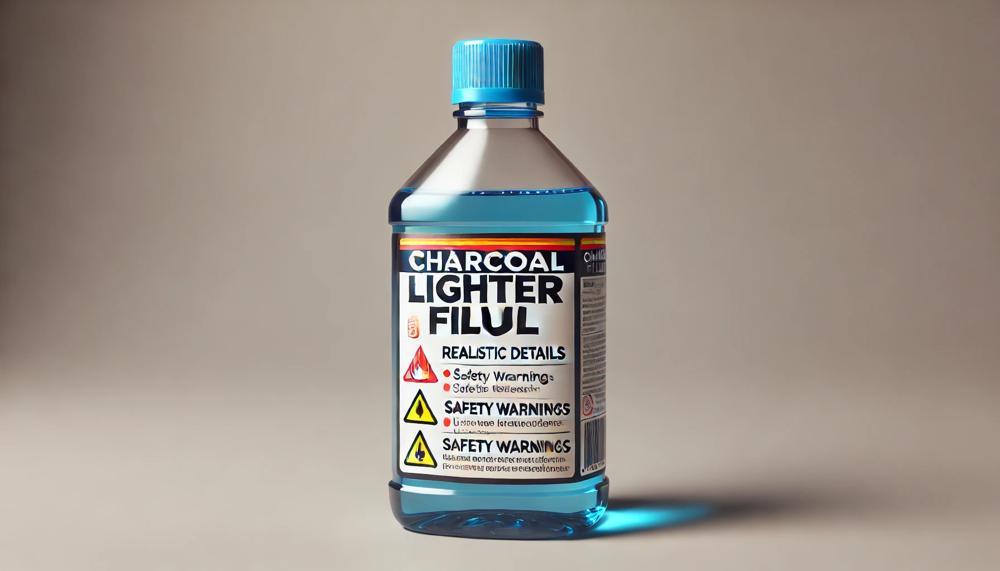
Mastering the Basics:
Choosing the Right Fuel:
- Select the fuel that suits your needs: charcoal for traditional smoky flavors, gas for convenience and quick heating, or wood pellets for enhanced smokiness.
Preparing the Grill:
- Regularly clean the grill grates to prevent sticking and maintain hygiene.
- Check for gas leaks if you use a gas grill and ensure proper ventilation to avoid accidents.
Selecting the Best Cuts of Meat:
- Opt for cuts like ribeye or chicken thighs that are forgiving to beginners and easy to grill.
- Season meat generously with salt and pepper or marinade for at least 30 minutes before grilling.
Timing and Temperature Control:
- Use a meat thermometer to check for doneness and avoid overcooking or undercooking.
- Experiment with searing for caramelization and indirect grilling for slow-cooked tenderness.
Safety First:
- Keep a fire extinguisher nearby for emergencies and never leave a lit grill unattended.
- Avoid loose clothing that could catch fire and handle hot utensils with care.
Experimenting with Flavors:
- Try different wood chips like hickory or mesquite for varied smoky tastes.
- Explore new marinades and spice blends to enhance the flavors of your grilled dishes.
These tips will help beginners navigate the art of grilling with confidence, ensuring delicious results and a rewarding culinary experience.
Safety Precautions
| Safety Precautions | Details | Additional Information |
| Choose the Right Charcoal | Select high-quality, additive-free charcoal to avoid harmful chemicals. | Consumer Reports Guide on Charcoal Selection |
| Use Lighter Fluid Sparingly | Apply lighter fluid minimally to prevent a strong chemical taste in your food. | Healthline’s Safety Tips for Grilling |
| Store Safely | Keep lighter fluid in a cool, dry place away from heat and flames. | National Fire Protection Association Guidelines |
| Avoid Hazards | Do not use near children, pets, or flammable materials. | Ready.gov Grilling Safety Tips |
| Avoid Flare-ups | Never add lighter fluid to hot coals to prevent dangerous flare-ups. | BBQGuys’ Grilling Safety Precautions |
Cleaning Up
| Cleaning Up After Using Charcoal Lighter Fluid | ||
| Dispose of Unused Charcoal Lighter Fluid Safely | ||
| Unused lighter fluid should be stored in its original container away from heat sources and open flames. | ||
| Allow the Grill to Cool Completely | ||
| Before cleaning, ensure that the grill has cooled down to avoid any risk of burns or accidents. | ||
| Clean the Grill Grates | ||
| Remove the grates and scrub them with a wire brush to remove any residue from the cooking surface. | ||
| Dispose of Used Charcoal and Ash | ||
| Once the coals have completely cooled, dispose of them in a metal container designated for ash disposal. | ||
| Wipe Down the Exterior of the Grill | ||
| Clean the outside of the grill with a damp cloth and mild detergent to remove any grease or residue. | ||
| Store Charcoal and Equipment Properly | ||
| Store charcoal and grilling equipment in a dry, secure location away from children and pets. |
Conclusion
Using charcoal lighter fluid can be a contentious topic among grill enthusiasts, as its impact on food flavor and safety are significant considerations. While convenient for quickly igniting charcoal, improper use can lead to unwanted flavors that detract from the quality of grilled dishes. Imagine carefully preparing a meal, only to have it tainted by the taste of lighter fluid residue.
To mitigate these risks, it’s crucial to apply lighter fluid judiciously. Directly applying it to the charcoal and allowing it to soak briefly before lighting minimizes the risk of residue affecting taste. Using only the necessary amount is key, as excess fluid not only alters flavor but can also pose safety hazards. If you suspect overuse or detect a chemical taste, starting fresh with new charcoal ensures a clean slate for optimal grilling.
While lighter fluid offers convenience, alternatives like chimney starters or natural fire starters provide safer options without compromising food flavor. Whether you’re a novice or seasoned grillmaster, mastering these techniques ensures your grilled creations shine with flavor, not regret.

